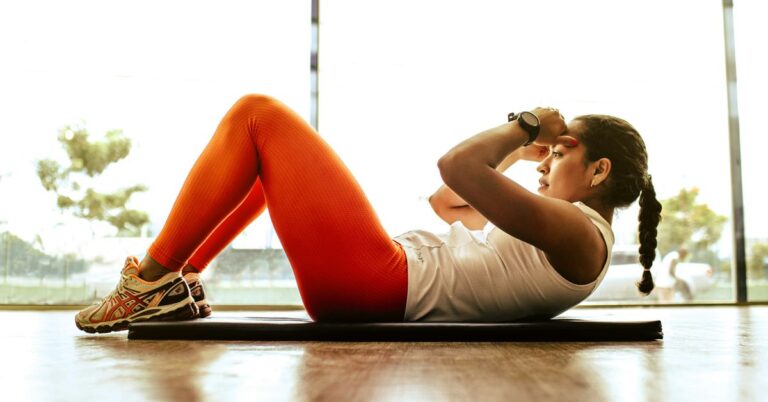Beyond the Game: How Sports Are Influencing Global Social Movements
You know, I was sitting on my couch the other day, half-heartedly flipping through channels, when I stumbled upon a documentary about the late, great Muhammad Ali. There he was, a boxing legend, but more so, a man who stood for something much bigger than himself—social justice, peace, and equality. I couldn’t help but think, “Wow, sports really are a powerful platform.” And that’s when it hit me: sports have transcended the game. They’ve become a significant catalyst for social change around the globe. It’s a fascinating evolution, one that I think deserves a closer look.
The Intersection of Sports and Social Change
Isn’t it wild how a simple game can bring people together? I remember a time when I was at a local park, watching kids from different backgrounds playing soccer. They didn’t care about their differences; they were just there to have fun and score goals. Sports have this unique ability to bridge divides, and historically, they’ve often been at the forefront of social movements. From the civil rights movement in the U.S. to the fight against apartheid in South Africa, athletes have stepped into the spotlight, risking their careers for the greater good.
Take Colin Kaepernick, for instance. His decision to kneel during the national anthem sparked a firestorm of debate. Some praised him for taking a stand against police brutality and racial injustice, while others criticized him for what they saw as disrespecting the flag. Regardless of where you stand on the issue, his actions ignited a nationwide conversation about race relations in America. It’s a perfect example of how the sports arena can serve as a microcosm of broader societal issues.
The Power of the Athlete’s Voice
Let’s not kid ourselves: athletes have a significant platform. With millions of followers on social media and the eyes of the world on them, what they say and do can have a ripple effect. Think about it: when LeBron James talks about education reform or supports the Black Lives Matter movement, it reaches a massive audience. He’s not just dribbling a basketball; he’s using his influence to advocate for change. And honestly, who wouldn’t want to be on the right side of history?
And it’s not just in the U.S. Look at the Women’s World Cup. When the U.S. women’s soccer team fought for equal pay, they didn’t just make headlines; they mobilized support from fans and fellow athletes worldwide. Their rallying cry echoed through stadiums, social media, and even the halls of Congress. It’s like they said, “Hey, we’re not just here to play; we’re here to challenge the status quo.”
Global Movements Fueled by Sports
Now, let’s zoom out a bit. Sports aren’t just a thing of national pride; they can inspire global movements. I mean, who remembers the famous image of Tommie Smith and John Carlos raising their fists during the 1968 Olympics? That moment was electrifying. It wasn’t just about sprinting; it was a powerful statement against racial inequality. Their silent protest reverberated around the globe and remains an iconic symbol of resistance.
Fast forward to today, and we see the same spirit alive and well. In recent years, athletes from various sports have joined forces to address climate change, gender inequality, and human rights issues. The “Athlete Activism” movement is gaining momentum, with players using their platforms to advocate for causes they believe in. It’s as if they’re saying, “We can’t just play the game; we have a responsibility to make the world a better place.”
The Role of Sports Organizations
And let’s not forget about sports organizations themselves. The NFL, NBA, FIFA… these aren’t just leagues; they have the potential to influence societal norms and drive change. Over the past few years, we’ve seen leagues take stances on important issues. The NBA, for example, has been vocal about social justice initiatives, even allowing players to wear messages on their jerseys. It’s like they’re saying, “We see you, we hear you, and we’re with you.” Pretty cool, right?
But here’s where it gets tricky. With the power of influence comes the risk of backlash. Sometimes, organizations have to navigate a fine line. If they take a stand, they risk alienating fans who may not agree. But on the flip side, remaining silent can be just as damaging. It’s a tough spot to be in, and I can’t help but wonder—what would I do in their shoes? Would I stick my neck out for a cause, knowing it might cost me fans (or worse, my job)?
Social Media: A Game Changer
Let’s talk about social media for a second. Wow, what a double-edged sword. On one hand, it’s an incredible tool for athletes to share their messages directly with fans. On the other hand, it can turn into a battleground of opinions and trolls (seriously, have you seen some of the comments?). But when used effectively, social media can amplify voices and mobilize movements in ways we’ve never seen before.
Take the recent #MeToo movement as an example. Athletes like Serena Williams and Megan Rapinoe have used their platforms to speak out against sexual harassment and discrimination. Their messages resonate, not just because of their status in sports, but because they’re relatable. They’re human, just like us, and they’re willing to share their stories and stand up for what’s right. It’s powerful stuff.
Sports as a Unifying Force
At the end of the day, sports have this incredible ability to unite people. Whether it’s cheering for your favorite team or engaging in a heated debate about a player’s performance, there’s a sense of community that comes with being a fan. And when athletes step up to address social issues, it creates an even stronger bond. Fans rally behind their heroes, and together, they can effect change. It’s like a giant game of tug-of-war, where everyone’s pulling in the same direction for a common cause.
I mean, who doesn’t love a good underdog story? When an athlete stands up against injustice, it makes us root for them even harder. It’s as if they’ve taken our collective hopes and dreams and thrown them into the ring, and we’re all in it together. It’s a beautiful thing.
The Future of Sports and Social Movements
So, what does the future hold for the intersection of sports and social movements? Honestly, I think we’re just scratching the surface. With younger athletes coming up, many of whom are more socially conscious than ever, I believe we’ll see an even greater push for change. Imagine a world where every athlete feels empowered to speak up, where their voices are not just heard but celebrated.
And let’s not forget about the power of storytelling. Documentaries, podcasts, and social media campaigns can shine a light on important issues and highlight the athletes who are making a difference. I think we’ll see more partnerships between athletes and organizations dedicated to social change, creating a ripple effect that reaches far beyond the sports arena.
Final Thoughts
As I wrap this up (and trust me, it’s been a journey), I’m left feeling hopeful. Sports are more than just games; they’re a reflection of our society, our struggles, and our triumphs. They have the potential to inspire change and challenge the status quo. So, the next time you’re watching a game or scrolling through social media, take a moment to think about the bigger picture. Behind every athlete is a human with a voice, and together, they can create waves of change that resonate far beyond the field.
And who knows? Maybe the next time you cheer for your favorite team, you’ll also be cheering for a movement that’s shaping the future. Now that’s a win-win! (Seriously, let’s keep this conversation going—what do you think? How can we all play a part in this?)









